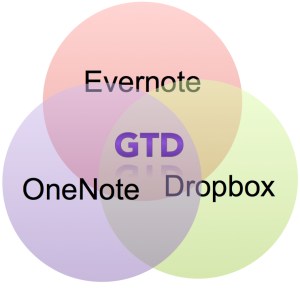Introduction:
In my current job, I’m working with a lot of people from Microsoft. If I mention “Evernote” I often hear “You mean OneNote … Right!?!”
This post is just a small scream out to the inner Microserfs (The t-shirt with “IBM Weak as a kitten, dumb as a sack of hammers!” alone makes the book worth reading!!!) of my anonymous Microsoft partisans:
OneNote and Evernote are different. Really different.
Let me use a Microserf-ish analogy:
- OneNote is Excel. Evernote is Power Query.
- Or, OneNote is Excel, and Evernote is PowerPivot.
Yes, their functionalities overlap. But no, they are not competitors. To a GTD person, they are complements, not substitutes. Oops, another analogy from economics just inserted itself.
There is a healthy humility at Microsoft today. Gone are the arrogant people looking at your extended hand and saying “Do I need to know you?” They’ve been replaced by mortals who worry about being laid off as well as worrying about whether their market share can be *significant*.
My Microserf partisans, embrace this humility!
But, don’t let your healthy humility combine with an unhealthy fear of failure, that will react with humility to produce defensiveness. OneNote is great. OneNote is powerful.
But not as powerful as OneNote+Evernote.
Read that last sentence again!
Bill Meade

